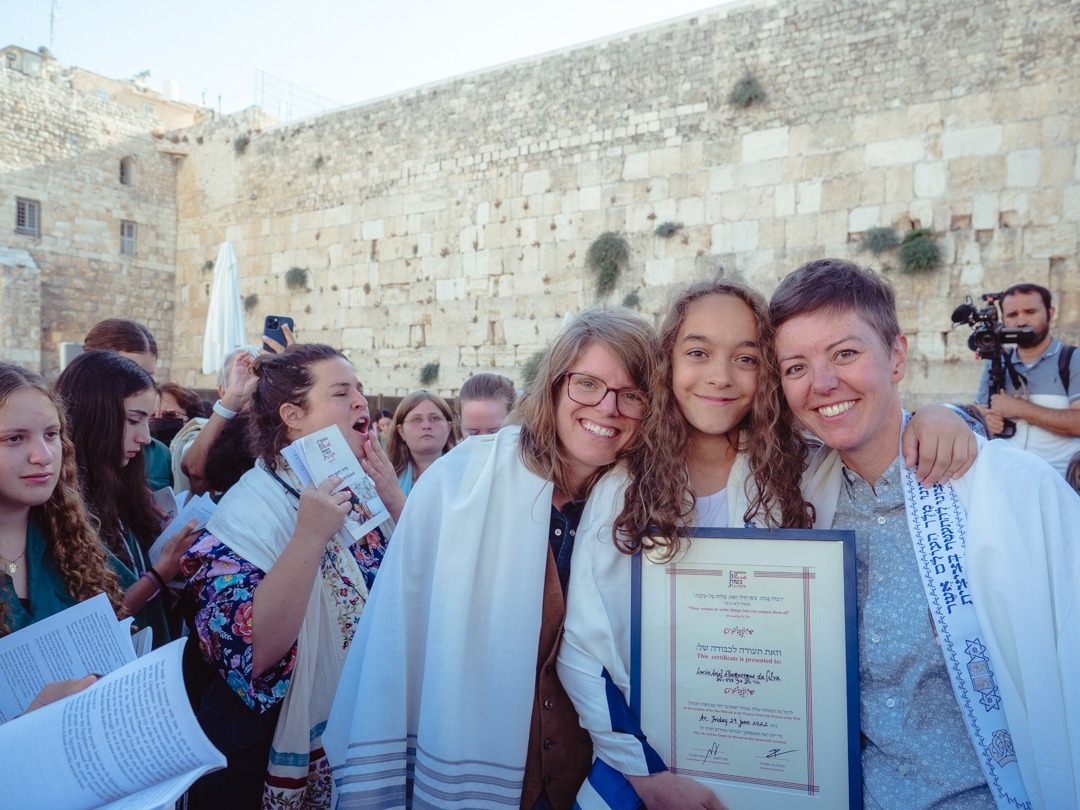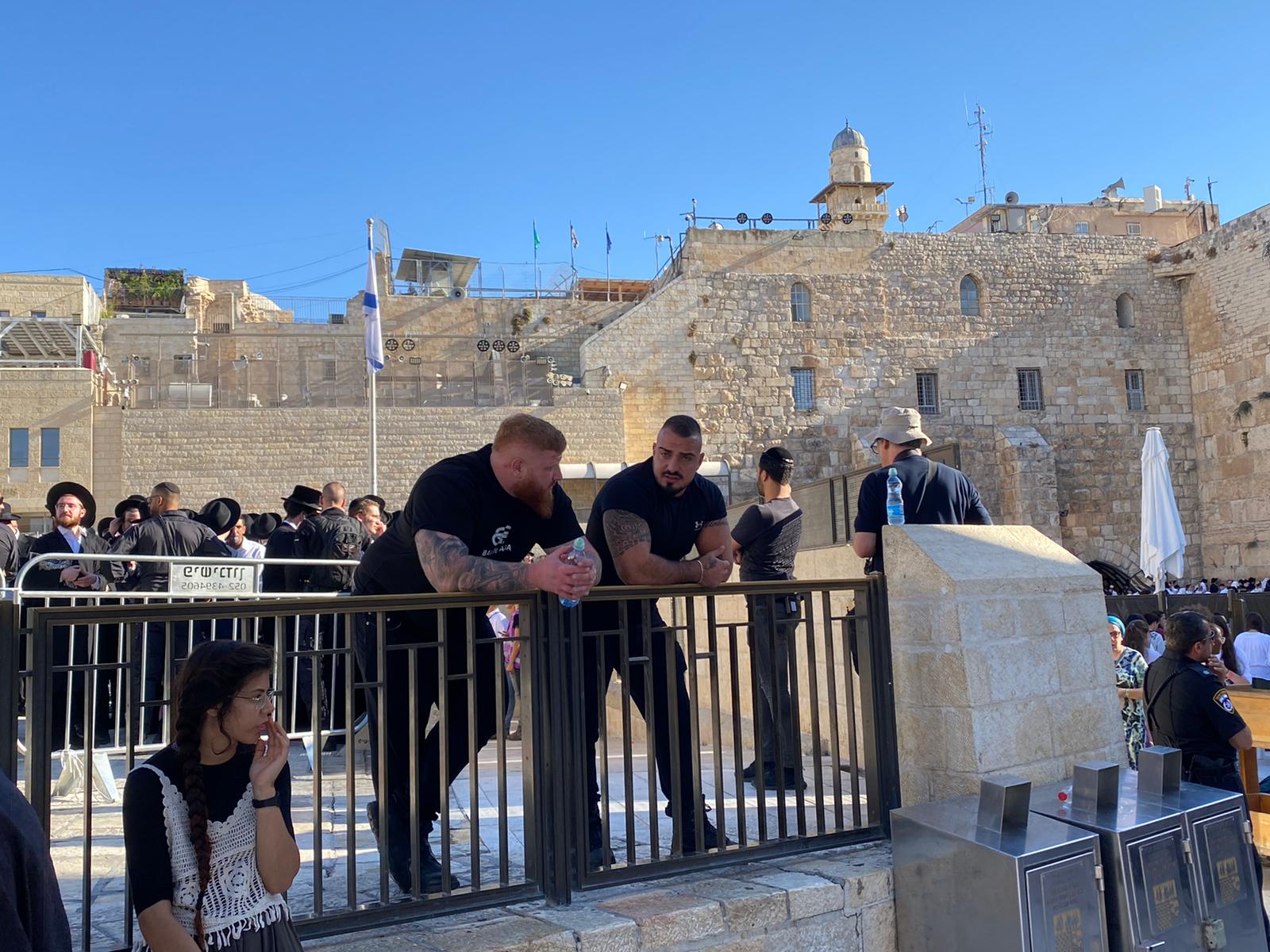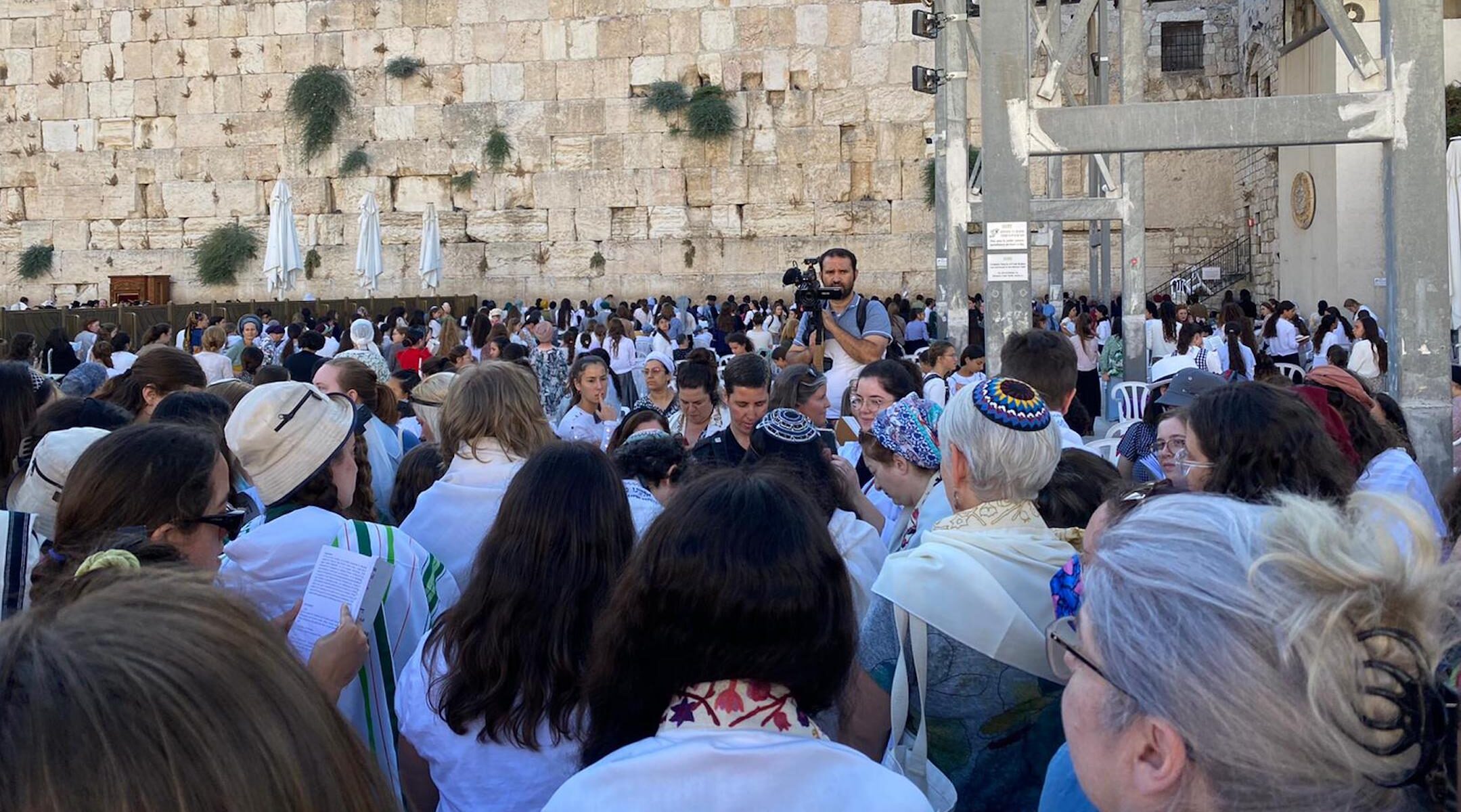JERUSALEM (JTA) — An American teen was harassed during her bat mitzvah ceremony at the Western Wall in Jerusalem Friday as haredi Orthodox protesters sought to interrupt non-Orthodox Jews’ prayer one month after a major incident drew attention from Israel’s political leadership.
No injuries or arrests were reported during Friday’s confrontation, which came during the observance of the start of the month of Av and after several months of escalating tensions at Rosh Hodesh prayers. But police and ushers hired by the Western Wall Heritage Foundation, the state-funded group that manages the holy site, also did not appear to enforce Israel’s law prohibiting the disturbance of prayers, a crime that can carry a penalty of up to three years in jail.
Thousands of black-attired young yeshiva students, both male and female, swarmed a group of about 100 women and a dozen men who accompanied them to the Western Wall, where traditional prayers were to take place at 7 a.m., ahead of the bat mitzvah of Lucia da Silva, 12, of Seattle, who came to Israel with her parents and godparents to celebrate the event.
Her mother, Ada Danelo, had prepared Lucia ahead of time to think of the Western Wall as an arena. In this scenario, da Silva was the soccer star kicker, and the crowd included both hooligans and supporters.
“I looked at them as fans who came to cheer me on,” Lucia said of the commotion that encircled her as she read from scripture at one of Judaism’s holiest sites.

Lucia da Silva, 12, from Seattle, Washington, surrounded by her mothers Cara Stoddard (right) and Ada Danelo (left) in front of the Western Wall, July 29, 2022 (Tal Kfir Shor)
Each month, a group called Women of the Wall attempts to read Torah at the Western Wall, where egalitarian prayer is prohibited except in a special section and women’s prayer is circumscribed.
Ushers working for the Western Wall Heritage Foundation, a state-funded institution, attempted to direct the women into a dedicated lane leading to a fenced-in corral but Women of the Wall refused. Instead, they headed to the center of the women’s section, adjacent to the men’s section of the Kotel, as the wall is known in Hebrew, to hold their service.
Clutches of girls dressed in black set upon the women, calling them whores and heretics and hollering that they should burn in hell. When confronted by Women of the Wall activists and asked for their names, three of the girls in unison replied, “I’m a minor.” Others blew whistles to prevent the women from praying out loud.
The women’s section descends towards the wall. From the men’s section, above the women, thousands of young men taunted them with coarse gestures and insults, and were occasionally herded away by police lines. Photographers practiced in the monthly ritual came equipped with noise blockers.
Meanwhile, on the women’s side, the Western Wall Foundation employed at least two videographers to film the women at prayer, with one of them, a man, hovering directly above them from a stool placed in the women’s section. Asked about the offenses against freedom of worship at the wall, officer Eyal Abraham told the Jewish Telegraphic Agency, “I don’t know anything about the law. Talk to the foundation.”
When asked about the commotion, which made any conventional sort of worship impossible, Eden Shimon, deputy head of operations for the Western Wall Foundation, replied “Get out of my way. Sue me.”

Ushers employed by the Western Wall Heritage Foundation during the tumultuous Rosh Hodesh prayers, July 29, 2022. (Noga Tarnopolsky)
Loudspeakers situated in the adjacent men’s section, but facing over the women’s section, blared prayers intended to drown out the women’s voices.
Attorney Orly Erez-Likhovski, incoming director of the Israel Religious Action Center, described the women’s section as a “lawless pit devoid of any sort of rule.”
“They see us as provocateurs,” she said, indicating toward the police officers lingering near the entrance to the women’s section, “not as citizens exercising their rights.”
Anat Hoffman, Women of the Wall’s chair, protested that the police’s refusal to demand identification from any of the aggressors rendered any future complaint moot. “The cases are closed before they’re opened,” Erez-Likhovski said.
Recent months were marked by significant escalation in the violence directed at women and non-Orthodox Jews praying at the Wall. At least five bar mitzvah ceremonies held in the ostensibly egalitarian “Ezrat Israel” southern section of the wall were targeted by violence in recent weeks, notably that of Seth Mann, of Las Vegas, whose mother, Sari Mann, is the director of Nevada’s state AIPAC, the pro-Israel lobby.
In a passionate essay published in the Times of Israel after the incident, Seth Mann’s father Joel wrote that he was initially relieved when he saw police officers arrive to his son’s ceremony, which was being ruined by haredi teenagers blowing whistles and yelling “goys” at the celebrants.
“The police did little to nothing to stop the disturbance and sometimes violent attacks that occurred. The Israeli Police stood there as the haredi teens attacked Jews,” he wrote.
“It was at this moment that my heart broke,” Mann went on. “I realized that not even in the State of Israel, the homeland for the Jewish people, am I allowed to pray freely and safely. My son, on his Bar Mitzvah, is told he is not Jewish.”
Prime Minister Yair Lapid called the family to express his dismay, and later ordered that barriers separating men and women in traditional Jewish places of worship be prohibited in the egalitarian section of the Western Wall. The barriers, called mechitzas, have recently been used as instruments of violence against worshippers.
In the chaos this Friday, one small figure appeared unfazed: Lucia da Silva, the slight but self-assured bat mitzvah girl, for whom this was the culmination of a full year of study of the sacred texts and of the Hebrew language. The bat mitzvah, she said, was among the highlights of her trip to Israel, along with the Dead Sea and the beach.
Back home in Seattle, Danelo said that she and her wife, Cara Stoddard, sometimes felt attacked for their Zionism. In Israel, she shrugged, they were “attacked for being … Jews.”
JTA has documented Jewish history in real-time for over a century. Keep our journalism strong by joining us in supporting independent, award-winning reporting.






